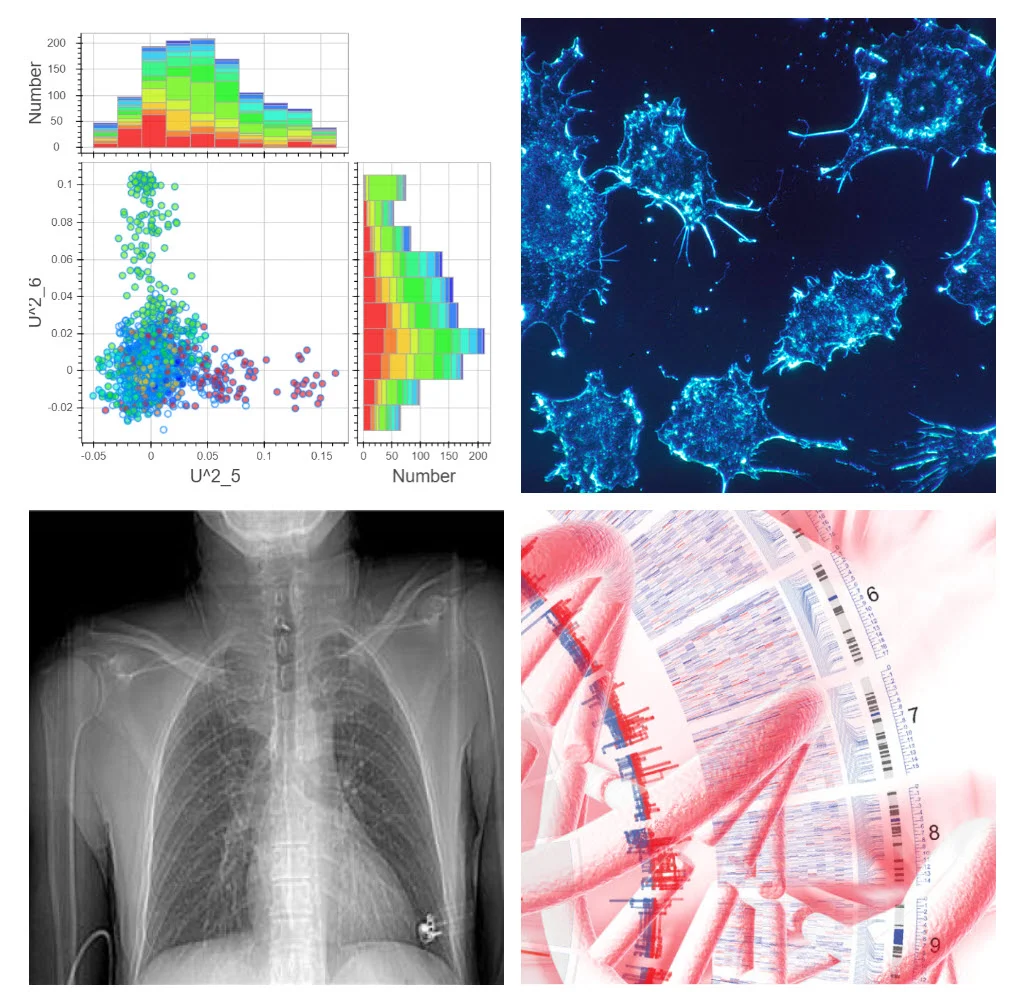
2019 TEAMS
Team 5: Stratification of SLE patient cohort for precision medicine
Create analytical tools to stratify lupus patients into subsets based on significant differences in genetics and clinical characteristics.
Systemic Lupus Erythematosus (SLE) is a complex polygenic autoimmune disease. Existing literature suggest that combination of genetic risk alleles and environmental factors can create an autoimmune-prone immune system which becomes dysregulated, leading to autoimmunity. SLE is clinically and genetically heterogeneous, which complicates its diagnosis, prognosis, management, and the development of effective therapeutic protocols. We have developed an extensive dataset combining genomic sequences of more than 28 SLE risk loci with extensive autoantibody profiles and clinical pathologies.
Our goal is to develop analytical tools that can use these data to stratify SLE patients into subsets with significant differences in their genetics and clinical characteristics. The development of a genomic/phenotypic test that could predict clinical course and response to management would significantly improve outcomes and prevent complications of SLE. We believe that it is likely that this “precision medicine” approach will lead to the development of companion diagnostics that can be used to identify SLE patients that are most likely to respond positively to specific drug therapies. Since SLE clinical trials often show drug efficacy in a subset of patients but fail to be of significant benefit for the total patient cohort, we believe that effective subsetting of SLE patients based on genetic and phenotypic elements could dramatically improve the discovery of effective drug therapies for targeted patients subsets.
Team Lead: Prithvi Raj, Immunology, profiles.utsouthwestern.edu/profile/116973/prithvi-raj.html
Team 6: The isoform potential of the genome
Maximize utility of gene ontology analysis thru creation of a genome browser track making protein isoform prediction accessible to the broader biomedical research community.
While the diversity of cellular functions is attributed, in part, to the protein isoform variation mediated by pre-mRNA splicing, a comprehensive catalog of candidate functional isoforms is lacking. An atlas of predicted alternative splicing events with functional potential – intact, conserved open-reading frames (ORF) - would provide a platform for protein isoform discovery, detection and characterization in physiology and disease states.
Protein isoforms produced from alternative splicing events of specific genes are of major interest to the Hancks Lab for their potential to expand and diversify the host arsenal against invading pathogens and regulate immune responses. Spliceform discovery has been driven by cDNA analysis. However, this framework is limited in detection power when spliceforms are: 1) tissue- or cell-type (unsampled), 2) inducible, 3) developmentally-regulated, or 4) low abundance variants. We propose to develop a bioinformatic framework that could serve to identify spliceform candidates genome-wide and seed biological investigation.
To define the landscape of potential ORFs from, nonsense-mediated decay (NMD) pathway rules should be used as an initial filter. To further limit false positives, sequence across species conservation can be exploited. To aid in the characterization of predicted isoforms, gene ontology analysis should be performed. The utility of this information would be maximized if translated into a genome browser track allowing accessibility to the community at large and those interested in the biology of specific-genes/pathways. Described filtering would require incorporating either scripts and/or existing databases for translation of DNA sequences, NMD predicted-susceptibility, and gene ontology analysis.
Team Lead: Dustin Hancks, Immunology, www.utsouthwestern.edu/labs/hancks/




